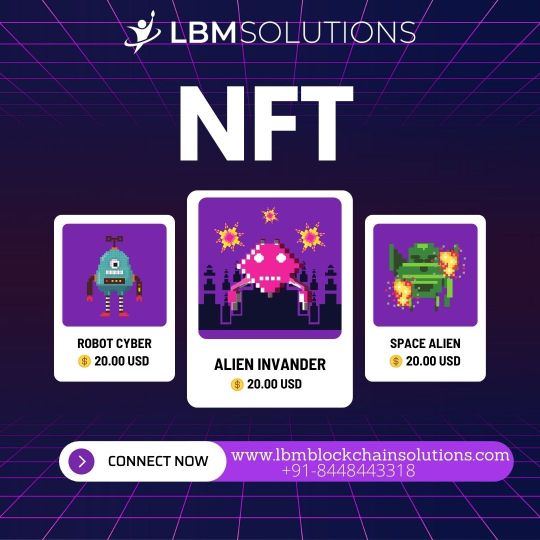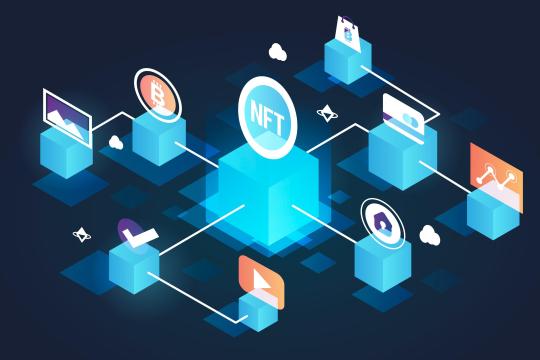#blockchaindevelopment
Text
With our ICO development services, you may improve funding and promote business growth for long-term success. Our blockchain-based ICO platform development services enable companies to grow more quickly and smartly!
Follow @kryptobeess
To Know More: https://www.kryptobees.com/ico-development-company

#ICO#ICODevelopment#Blockchain#Cryptocurrency#CryptoFunding#TokenSale#BlockchainTechnology#CryptoLaunch#BlockchainDevelopment#DecentralizedFinance#DeFi#CryptoProjects#DigitalAssets#TokenEconomy#SmartContracts#TechInnovation#CryptoGrowth#BlockchainSolutions#ICOPlatform#FinTech
2 notes
·
View notes
Text

Blockchain, the technology powering cryptocurrencies, has the potential to revolutionize the global economy. It securely records ownership details like land or bonds on a distributed ledger, enabling trustless asset transactions.
Unleash seamless transactions with blockchain tech! Say goodbye to intermediaries and hello to secure, efficient exchanges. Join us in shaping the future!
2 notes
·
View notes
Text

"Rambee Softech: Transforming Businesses With Innovation"
Our innovative solutions pave the way for transformation, empowering your business to thrive in the digital age. Experience growth and success like never before with Rambee Softech.
For more information, visit the site: https://www.rambeesoftech.com/
2 notes
·
View notes
Text
Blockchain VS Banks
Blockchains have been considered as a disruptive force for the financial sector, especially for payment and banking functions. However, banks and decentralized blockchains are very different. As the transactions in blockchains are much faster than those in banks, blockchain allows us to conduct transactions 24 hours a day, seven days a week, whereas banks are only open from 9 a.m. to 5 p.m. on fixed days. Moreover, being a Blockchain development company, we can explain many more advantages of Blockchains over banks. Get in touch with us today!
#blockchain#blockchaintechnology#blockchain in banking#cryptocurrency#decentralized#blockchaindevelopment
7 notes
·
View notes
Text

Colan Infotech is a leading Custom Software Development Company offering innovative solutions to various business problems. We are an ISO certified organisation having expertise in developing custom web applications, mobile apps, desktop applications, ERP systems, CRM, CMS, eCommerce websites, etc.
For more information about custom software development click here_https://colaninfotech.com/
#customsoftware#softwarecompany#webappapplication#mobileappdevelopment#emergingtechnologies#blockchaindevelopment
#Colan Infotech is a leading Custom Software Development Company offering innovative solutions to various business problems. We are an ISO ce#mobile apps#desktop applications#ERP systems#CRM#CMS#eCommerce websites#etc.#For more information about custom software development click here_https://colaninfotech.com/#customsoftware#softwarecompany#webappapplication#mobileappdevelopment#emergingtechnologies#blockchaindevelopment
2 notes
·
View notes
Text
A Guide to Crypto Exchange Types
Cryptocurrency exchanges are becoming increasingly popular, but keeping up with the different types of exchanges and how they work can be difficult. In this blog post, we will break down the various types of crypto exchange so that you can make an informed decision when choosing the right one for your needs.

Centralized Exchanges (CEX)
Centralized Exchanges (CEX) are the most common type of cryptocurrency exchange in existence today. CEXs are operated by a single entity and offer users the ability to trade coins for fiat currency or other cryptocurrencies. These exchanges typically have high liquidity, meaning that it is easy to buy and sell cryptocurrency quickly on them. Additionally, CEXs usually provide users with access to advanced trading features such as margin trading and stop-loss orders. One downside of CEXs is that they tend to have higher fees than other types of exchanges, which makes them less attractive for traders who want to minimize costs.
Decentralized Exchanges (DEX)
Decentralized Exchanges (DEX) operate differently than their centralized counterparts, as they do not rely on a single entity to manage trades or store funds. Instead, all trades are conducted directly between users without any third-party interference. This ensures that users retain full control over their funds at all times and eliminates the risk of hacking or manipulation by malicious actors. As a result, DEXs tend to have much lower fees than CEXs since no central operator is taking a cut from each transaction. However, DEXs tend to have lower liquidity than CEXs due to their decentralized nature and lack of advanced trading features like margin trading and stop-loss orders.
Hybrid Exchanges
Lastly, Hybrid Exchanges combine elements from both CEXs and DEXs to create an exchange that offers more flexibility and better security than either type alone. Hybrid exchanges use a combination of centralized servers for order matching while also allowing users access to decentralized wallets where their funds remain secure at all times during trades. This allows them to offer more advanced features such as margin trading while still maintaining high levels of user security and privacy that would not be possible with traditional centralized exchanges alone. Additionally, hybrid exchanges often charge lower fees than centralized ones due to the increased efficiency created by combining both types into a single platform.
Conclusion: Whether you are new or experienced investing in cryptocurrency exchanges, knowing which type of exchange best suits your needs is critical to trading successfully in today's digital markets. With its decentralized nature and fast transaction speeds, it’s no wonder why many cryptocurrency investors turn to the best crypto exchange Development Company when buying and selling digital assets on the blockchain network. Centralized exchanges offer more liquidity but come with higher fees; Decentralized exchanges provide more security but are associated with less liquidity; hybrid exchange combines elements from both systems for maximum flexibility and security; so choose wisely! With these tips, you should be able to make an informed decision about what type of crypto exchange is right for you!
2 notes
·
View notes
Text
Metaverse is a huge concept to understand, and is being used worldwide & with the modernization of technology, professionals are making it more real & creative to experience such amazing virtual Graphics
1 note
·
View note
Photo

Hey guys, check out our latest video- Binance Leading Web3 Fundings | Law enforcement inquiring surging for Coinbase | DIMO launches mainnet | 13% Americans holding crypto 🔰Credits to the original news content sources- 1- Binance Labs Leads Funding Round For Web3 Project- https://bitcoinist.com/binance-leads-funding-web3-project/ 2- Coinbase report shows dramatic increase in law enforcement enquiries worldwide- https://cointelegraph.com/news/coinbase-report-shows-dramatic-increase-in-law-enforcement-enquiries-worldwide 3- Decentralized automotive insight network DIMO launches mainnet- https://www.theblock.co/post/193837/decentralized-automotive-insight-network-dimo-launches-mainnet 4- 13% of Americans have now held crypto: JPMorgan research- https://cointelegraph.com/news/13-of-americans-have-now-held-crypto-jpmorgan-research ———————————————————————————————————————————————— 🔰If you Want to get 100 USDT, Register on the world's biggest crypto exchange- Binance and deposit more than $50 into your account. We'll both get a 100 USDT cashback voucher! 👉 https://bit.ly/bobinance #️⃣ Let's connect on Social Media:🌎 : 👍All links here (IG, Twitter, etc) - https://linktr.ee/cryptoikonmedia 📼 Also Streaming on Theta: https://www.theta.tv/cryptoikonmedia 💼 Business Inquiries: [email protected] 😎 Common username on all other major platform: @cryptoikonmedia 🔰About us: Crypto Ikon Media is a full-service Interactive #Crypto Media Agency. We provide 360-Degree Digital Branding & Marketing services to (Crypto, Defi, NFT, Web3, Metaverse & Blockchain) projects and companies. ———————————————————————————————————————————————— Disclaimer: Our content is not financial advice, legal advice or tax advice in any way, shape or form. Please do your own research. DM for credit or removal request (no copyright intended) ©️ All rights and credits reserved to the respective owner(s) . . . . . . #cryptocommunity #vechain #cryptoassets #criptotrading #tokenization #exchanges #blockchaingames #cryptokitties #ethereumproject #blockchaindevelopment #blockchainsolutions #earncrypto #airdropalert #cryptology #zilliqa #cryptogram #ftse #mainnet #instabitcoin #blockchain (at Delhi, India) https://www.instagram.com/p/CmHgeQbI3d5/?igshid=NGJjMDIxMWI=
#crypto#cryptocommunity#vechain#cryptoassets#criptotrading#tokenization#exchanges#blockchaingames#cryptokitties#ethereumproject#blockchaindevelopment#blockchainsolutions#earncrypto#airdropalert#cryptology#zilliqa#cryptogram#ftse#mainnet#instabitcoin#blockchain
1 note
·
View note
Text
What is Crypto Exchange

Crypto Exchange is a Platform Where We Can Exchange Digital Currencies. Biggest Crypto Exchange Platforms are :- Binance , Deepcoin , Tokencan , GTX etc. Crypto Exchange uses Blockchain technology and Smart Contract That makes it secure. Two main Types of Crypto Exchange :-
Centralized Crypto Exchange
Decentralized Crypto Exchange
Centralized Crypto Exchange
If you want to invest in Cryptocurrencies you must know about Centralized Crypto Exchange. Centralized Crypto exchange is Online platforms used to Buy and sell Cryptocurrencies. Some Key Points of Centralized Crypto Exchange.
1 Control Your Fund
2 Not Anonymous
3 Hack and Money stole
4 Easy to use
5 Advanced Tools
1. Control Your Funds :- In the centralized Crypto Exchange Third party Control Your funds .
2. Not Anonymous :- Everyone can see the transaction without revealing their own identity.
3. Hack and Money stolen :- In the centralized Crypto Exchange Your data Not very Secure Because third party Control your Transactions and Data . so it's easily hacked.
4. Easy to use:- Centralized Crypto Exchange is very easy To use.
5. Advance Tools: In the Centralized Exchange you can Use Advance Features for Trading.
Decentralized Crypto Exchange
If You want to create your own Crypto Exchange, then You Must Know About Decentralized Crypto Exchange. Decentralized crypto Exchange is Similar to Centralized crypto Exchange but some very Important Differences between Centralized and Decentralized Crypto Exchanges.
Some Points of Decentralized Crypto Exchange:
1 You Control Your Fund
2 Anonymous :- Your all Transactions are Fully transparent and You can Reveal your Identity .
3 No Hack
4 Services Online 24/7
5 Not easy Use
1. You Control Your Fund :- In the Decentralized Crypto Exchange You can Control your All funds You are the owner of Your Account No third party Involved in the Decentralized Crypto Exchange.
2. Anonymous :- Your all Transactions are Fully transparent and You can Reveal your Identity .
3. No Hack :- Decentralized Crypto Exchange provides peer-to-peer transactions facilities to their User so it's very Less chance To hack your System.
4. Services Online 24/7 :- It provides 24/7 service.
5. Not easy to use :- Decentralized Exchange Is Not Easy to use .
If you want to Build your Own Crypto Exchange and Seeking for Best Crypto Exchange Development Company in India, LBM Blockchain Solutions is The Best Crypto Exchange Development Company in India.
3 notes
·
View notes
Text

🚀 Blockchain enthusiasts, have you heard about Zk-Rollups? Our latest blog post explains how Zero-Knowledge Proofs are paving the way for scalable and secure blockchain solutions. Don't miss out on this insightful read!
https://www.osiztechnologies.com/blog/what-are-zk-rollups
0 notes
Link
Blockchain technology is a decentralized digital ledger known for its transparency, security, and efficiency, widely used in cryptocurrencies. Rust, a programming language, is favored for blockchain development due to its safety, performance, and concurrency features. Rust's ownership model ensures memory safety, making it ideal for blockchain's complex environments. Its robust type system and supportive ecosystem further enhance its suitability for blockchain applications.
#Here#are#five#relevant#hashtags#for#the#provided#text:#1.#BlockchainTechnology#2.#RustLang#3.#Decentralization#4.#CryptoSecurity#5.#BlockchainDevelopment
0 notes
Text
Ready to build your own private blockchain?

Discover the step-by-step process to create a secure, scalable, and efficient private blockchain tailored to your business needs. Unlock the potential of blockchain technology today with the help of Osiz.
Create Blockchain: https://www.osiztechnologies.com/blockchain-development-company
#Blockchain #PrivateBlockchain #TechInnovation #SecureTech #BlockchainDevelopment #BusinessGrowth #osizstudio #osiztech #osiz #usa #uk #singapore #Blaize #Blockchain #PrivateBlockchain
0 notes
Text
In-House vs. Outsourcing Software Development-Which One Is Right For You: The Ultimate Guide for Non-technical Business Entreprenuers
A recent study revealed that app-based startups receive 825% higher initial public offerings than non-app-based startups. So, no wonder businesses across the industry rush to build a mobile app for their ventures. However, building a mobile app is a challenging choice for non-technical business founders as they often need help with the question of in-house vs. outsourcing software development: which one is best? Each option has its advantages and disadvantages, and simply put, the decision is a tough one. This decision is more than just a matter of cost—it’s about balancing control, expertise, flexibility, and speed to market.
Furthermore, it has a profound impact on ensuring the future success and growth of the business, making it crucial for a non-technical business founder to evaluate each aspect of these two approaches. In this article, we will explore the key factors influencing this critical choice, analyze the advantages and disadvantages of each option, and provide actionable insights to help you make this crucial choice. So, read the blog till the end.
In-House Vs. Outsourcing Software Development-Understanding your Option:
In-House Software Development: In-house mobile app development refers to the process of building and maintaining a mobile application using the organization’s own resources and developers team, designers, and tech professionals. The businesses directly employ these professionals and developers with the aim of having complete control over the development process. Incorporating this development method can help you ensure that the app closely aligns with the vision, culture, and specific requirements of your business.
Common Scenarios Where In-House Software Development Is Preferred:
You can opt. For in-house software development in situations where you need control, security, and integration in your software development process. Here are some common scenarios where businesses might prefer to develop their software internally:
Sensitive Data Handling: Suppose you own a business that deals with susceptible data, such as financial institutions, healthcare providers, or data management agencies. In that case, having an in-house development team can help you maintain stringent security measures and ensure data confidentiality.
Proprietary Technology: If you own innovative technology or intellectual property that requires protection from external threats and attacks, the best option is to have an in-house software development team.
Complex Systems Integration: When your business already has an existing system and needs a new sophisticated application to integrate with it, you need an in-house software development team. In this scenario, your in-house software development team can be much more effective as they are familiar with the current infrastructure and can handle these complexities more efficiently.
Sufficient Resources: If your startup has enough resources, you can use them to invest in developing software for your business. Furthermore, you are confident that the resources are enough to maintain an expert development team and can accomplish the long-term development needs of your newly developed application.
Frequent Iterations and Customization: Companies needing frequent updates, customizations, or iterative changes throughout the development process benefit from the direct oversight and flexibility that in-house teams provide.
Outsourcing Software Development: Outsourcing software development involves hiring outside development firms or freelancers to manage and maintain all of your company’s software development projects. Hiring an external development agency can offer several advantages, particularly for non-technical entrepreneurs or businesses looking to optimize costs while building an app.
Common Scenarios Where Outsourcing Software Development Is Preferred:
Limited Budget & Resources: If you are a startup owner with a limited budget, hiring an external software development team is the best option for you. This process allows you to access high-quality development services without the financial burden of maintaining a full-time in-house team. In addition, outsourcing helps manage costs by converting fixed costs into variable costs, allowing you to pay for services only when needed.
Scalability & Flexibility: Businesses experiencing fluctuating workloads can leverage outsourcing to scale development efforts up or down quickly without the constraints of long-term employment contracts. For instance, if you have one-off projects or temporary initiatives, outsourcing provides the flexibility to hire a team for the project’s duration without ongoing commitments.
Faster Time To Market: If your startup faces strict deadlines to launch products quickly, you can benefit from the rapid mobilization and dedicated resources of an outsourcing software development firm. Furthermore, you can leverage teams across different time zones, enabling you to have round-the-clock development that accelerates project timelines.
Risk Mitigation: Outsourcing software development enables you to share project risks with your development partner, as external development agencies often have experience managing similar projects and mitigating common risks. Furthermore, due to high competition, reputable outsourcing development firms ensure high service quality and standards, reducing the risk of project failures.
Tackling Talent Shortages: In regions with talent shortages or high competition for skilled developers, outsourcing offers a practical solution to access the necessary expertise without prolonged recruitment processes. Furthermore, by outsourcing a software development team, you can temporarily augment your team with specialized skills for specific projects.
Advantages & Disadvantages Of In-House Software Development:
Advantages:
Control and Customization:
Direct Oversight: Full control over the development process allows for real-time adjustments and deeper customization.
Immediate Changes: Ability to make quick changes based on feedback or shifting business needs.
Team Integration:
Cultural Fit: In-house teams align more closely with the company’s culture and goals.
Clear Communication: Easier communication and collaboration with team members who are physically present or deeply integrated into the company.
Quality Assurance:
Consistent Standards: Maintaining high quality through direct supervision and established internal processes.
Immediate Feedback: Quick iterations based on immediate feedback from stakeholders.
Security:
Data Protection: Better control over security measures and protection of sensitive data and intellectual property.
Reduced Risk of Breaches: Lower risk of data breaches compared to sharing information with external vendors.
Disadvantages:
Challenge of Scaling an In-house Team:
Resource Limitations: Scaling an in-house team quickly to meet project demands can be difficult and time-consuming.
Flexibility Issues: Less flexibility to ramp up or down based on project needs compared to outsourcing.
Lacks Specialized Skill Sets:
Limited Expertise: In-house teams may need more specialized skills for specific projects, requiring additional training or hiring.
Skill Gaps: Need ongoing investment in training and development in order to keep up with the latest technologies and trends.
Resource Allocation:
Talent Acquisition: Challenges in finding and hiring the right talent, particularly in competitive markets.
Scalability Issues: Difficulty in scaling the team up or down quickly based on project needs.
Longer Time to Market:
Onboarding: Time-consuming recruitment and onboarding processes.
Limited Flexibility: Less flexibility in ramping up resources quickly for urgent projects.
Advantages & Disadvantages Of Outsourcing Software Development:
Advantages:
Access to Global Talent:
Specialized Skills: Access to a broad pool of specialized skills and expertise not available in-house.
Highly Qualified Specialists: Ability to tap into a global network of highly qualified and experienced developers.
Scalability and Flexibility:
Rapid Project Expansion: Ability to scale resources up or down quickly based on project needs.
Flexible Contracts: Engage teams on a project basis, allowing for flexibility in resource allocation.
Faster Time to Market:
Immediate Start: Ready-to-deploy teams that can start working on the project immediately.
Round-the-Clock Development: Utilizing teams in different time zones for continuous development.
Focus on Core Business:
Delegation: Allows the internal team to focus on core business activities by delegating non-core tasks.
Management Efficiency: Reduces the burden of managing a large in-house development team.
Advanced Tools and Technologies:
State-of-the-Art Resources: Outsourcing partners often invest in the latest tools, technologies, and infrastructure, which might be cost-prohibitive for individual companies to acquire.
Technological Upgradation: Keeping pace with technological advancements without significant capital investment becomes feasible through outsourcing.
Disadvantages:
Communication Challenges:
Time Zone Differences: Potential delays and coordination issues due to different time zones.
Language Barriers: Misunderstandings and miscommunications due to language differences.
Control and Oversight:
Less Direct Control: Reduced oversight and control over the development process.
Dependency on Vendor: Risk of becoming too dependent on the outsourcing partner for critical functions.
Quality Concerns:
Variable Quality: Inconsistent quality standards across different vendors.
Security Risks: Potential risks associated with sharing sensitive data and intellectual property with external parties.
Cultural and Organizational Differences:
Cultural Misalignment: Differences in work culture and practices that may affect collaboration.
Integration Issues: Challenges in integrating outsourced work with internal processes and systems.
In-House vs. Outsourced Software Development: Weighing the Options:
As you can see, the choice between in-house vs. outsourced software development depends on your company’s specific requirements and resources. However, data around the world shows that for the last couple of years. More companies opt to hire outsourced software specialists to manage IT-related projects. Recent data indicates that the IT outsourcing market is expected to reach US$541.10 billion in 2024 and is projected to grow at a CAGR of 8.48% over the next five years, reaching US$812.70 billion by 2029. The United States is expected to be the top revenue-generating region in 2024, with US$197.30 billion in revenue. The average spend per employee in the IT outsourcing market is also projected to reach US$152.00 in 2024.
The application outsourcing market is experiencing steady growth and is projected to reach $129.90 billion by 2028 at a CAGR of 1.84%. It indicates a rising preference for leveraging external expertise. Additionally, the average spend per employee in application outsourcing will sit at $34.08 in 2023, highlighting the significant investments companies are making in these external resources. These statistics suggest that businesses are increasingly recognizing the cost-effectiveness and flexibility offered by outsourcing.
The Final Verdict- In-House Vs. Outsourcing Software Development: Which Option Is Best For Non-Technical Business Founders Like You:
As you can see, there’s no one-size-fits-all answer to the in-house vs. outsourcing software development debate. The best approach depends on your specific project and company needs. Consider the factors listed above carefully to make an informed decision.
Read full blog here - https://logic-square.com/in-house-vs-outsourcing-software-development-which-one-is-right-for-you-the-ultimate-guide-for-non-technical-business-entreprenuers/
#OutsourcingSoftwareDevelopment#AppDevelopmentinUSA#MobileAppDevelopmentCompanyinUSA#WebAppDevelopment#IOTAppDevelopment#BlockchainDevelopment
0 notes
Text

Ethereum tokens are digital assets that can be used to represent anything of value. They are built on the Ethereum blockchain and can be used to represent anything from physical goods to loyalty points. Our Ethereum blockchain experts will guide and support you in creating ERC-20 tokens. To govern token transactions and maintain track of token balances, we construct an evolutionary token business with updated security features. We provide complete Ethereum Token Development Services in India by using efficient smart contracts and blockchain technology. Read Out to us by our Official Website- LBM Blockchain Solutions.
#token#tokendevelopmentservice#ethereum#tokenization#nft#blockchaindevelopment#blockchaintechnology#tokendevelopment#cryptoexchange#ethereumtoken#tokens
5 notes
·
View notes
Text
How to Make and Sell an NFT with the help of LBM Blockchain Solutions

Before you learn how to make and sell an NFT, it's important to be clear about what they are,
You most often hear about NFTs of digital art, but all kinds of things can be represented as an NFT, from videos to music and even real estate.
Here are some steps to make NFT.
01. Choose a digital wallet
02. Set up a digital wallet to pay for your NFT
03. Add cryptocurrency to your wallet
04. Connect your wallet to an NFT platform
05. Upload the file you want to turn into an NFT
06. Set up an auction for your NFT
07. Add a description to sell your NFT
08. Pay the listing fee to sell your NFT
By using these steps Create and sell your NFT with the help of LBM Blockchain Solutions. we are the leading NFT Development Company in India. we are providing solutions to your all problems.
we are helping to grow your business. We give one-stop answers for your computerized resource plan of action. We offer the best types of assistance to assist you with fostering your business.
#NFT#NFTdevelopment#nftdevelopmentcompany#Lbmblockchainsolutions#Blockchaindevelopment#Crypto#Cryptoexchangedevelopment#Cryptotoken#Cryptocoin
2 notes
·
View notes
Text
Explore A Foolproof Guide to Develop Blockchain Applications
Dive into the world of chain development and share your insights with our vibrant community! we explore the fascinating realm of A Foolproof Guide to Develop Blockchain Applications. Whether you're a beginner or an expert, your voice matters .

#BlockchainDevelopment#SmartContracts#DecentralizedApplications#BlockchainSecurity#BlockchainFrameworks
0 notes